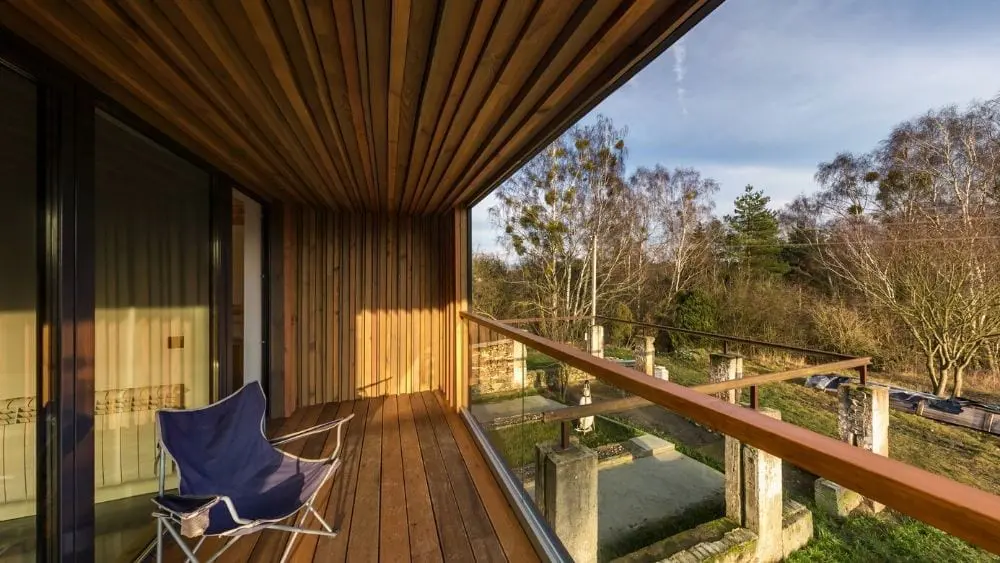
The winters in the northern parts of the United States can be brutal. In the south, the summers are equally brutal.
Wouldn’t it be nice to have two places to live — one in the north and one in the south? The number of people with two homes is increasing rapidly, as the number of Baby Boomers entering retirement grows.
Before you jump into owning two homes, start by asking yourself some important questions:
- Should I buy a second home or rent?
- Can I afford it financially, both for the purchase and the upkeep?
- What needs to be done when closing the home I’m not living in?
Let’s get started by looking at each question, one at a time.
Should I Buy a Second Home or Rent?
You live in a beautiful part of the country. You love your home, your neighborhood, your city or town. You’ve done a lot to make your house a home. You’ve heard about the great areas in which to retire and the ones to stay away from.
Before you even start thinking about where you’re going to go, it’s important to decide whether you’re going to buy or rent for the first year of your two-home adventure. In most cases, of course, you’re going to want to buy, simply so you know it’s your home, not one that comes with strings. According to a recent article by The Motley Fool, a leading personal finance website, the pros and cons of renting versus buying can be significant.
| Pros of Buying a Second Home | Cons of Buying a Second Home |
| You’re building equity on two homes | Expensive maintenance |
| Your monthly mortgage payment won’t go up | Property taxes and homeowners’ insurance |
| You’ll leave an asset for your family when you die | Home values do not always go up |
| Pros of Renting a Second Home | Cons of Renting a Second Home |
| No maintenance, property taxes or homeowners’ association costs | No equity |
| Rent is almost always cheaper | Rent can go up at the end of the lease |
| Flexibility to move whenever you want | You’re at the mercy of the landlord or management company |
Renting a second home can also be a good plan if you haven’t decided on where you’d like to have your second home. If you rent for six months and decide you don’t like where you live, you can always walk away at the end of the lease period and try another place, or go back to only owning one home. According to a report by PEW Charitable Trusts, more and more seniors are returning to their original homes after moving to retirement communities further south because of a lower cost of living or simply missing family and friends.
Can You Afford Two Homes?
Whether you buy or rent a second home, it’s important to know whether or not you can afford to carry two homes. Owning a second home can mean a life free from the extremes of cold and heat. It can also mean added expenses, if you’re not careful.
Start by calculating what your total monthly income is now and what it will be in five years, if everything remains the same. From there, subtract your monthly expenses at your primary home, like taxes, insurance, maintenance and utilities. Subtract the same amount, plus the amount you think you’ll owe for a new mortgage. How much money is left over?
There are other costs associated with carrying two homes. If you decide not to rent out either home while you’re occupying the other, you’ll have to make sure the lawn and outdoor areas are cared for. You will need to hire a housekeeper to dust and clean, even just surfaces, while you’re gone. Your homeowners’ insurance will also need to know when you change locations; a vacant home can be an insurance liability, so you may owe more during the times your home is unoccupied.
On the plus side, you can gain additional income if you rent your unoccupied home for the time you’re gone. There are plenty of people looking for short-term (less than a year) rentals. Having someone staying in your otherwise unoccupied home will ensure the lawn and outdoor areas are well taken care of and you won’t have to worry about someone breaking into the home because it’s vacant.
What Needs to Be Done When Closing the Home I’m Not Living In?
Finally, how you prepare for leaving one home to go to the other will determine the success of your two-home lifestyle. There are many things to consider when closing one home and opening the other:
- Bank with a national bank
- Forwarding mail
- Alerting insurance company
- Stop newspapers and deliveries
- Pay most bills online
- Place timers on lights so the house doesn’t look vacant
- Let neighbors know you’re leaving
- Turn off the water main, especially if the home you’re leaving is going to be vacant during freezing weather
- Unplug major appliances
- Hire a cleaning service to make sure you’re not coming back to a big mess
There’s no question: getting away from the cold or the heat, depending on where you live, has many great benefits. Having two homes can mean spending your retirement where it’s most comfortable.
Planning ahead, calculating the risk and making wise decisions can help make owning two homes the best decision you can make.

Laurie Leiker is a published author, business coach and consumer advocate. She spent 10 years as producer and on-air investigator for the Troubleshooter Tom Martino radio show in Denver, Colo., where she helped consumers get back more than $2 million in one year. She also was a technology pioneer, starting her first computer company in 1990, winning the designation “Best Computer Repair Company” in Denver in 1992.
 Back to School After Retirement?
Back to School After Retirement?
Dick Feldman
This article does not mention a series of complications associated with having two addresses. For one thing, when you enter a formal change of address, the post office informs various people, like your credit card company. We went to buy gas and our card was refused because the credit card company had changed our address. Also, we are in our second month of not receiving our Social Security checks because addresses don’t match. SS takes a month or two to make changes. There are all sorts of complications. I was looking for discussions of those in this article.
Tom Sheeran
Can’t you have direct deposit on your SS with a national bank, and you would not miss any pay-outs? Plus with more and more checks being stolen from the mail, it seems like a big risk…
R
We’re building a vacation house that will also be an AirBNB for part of the year. The home will be a winter get away and then an AirBNB rental. It’s in a golfing community, so the hope is that it’s rented out regularly. We’ve never had an AirBNB so there will be a learning curve. I’m looking for information about this type of situation.